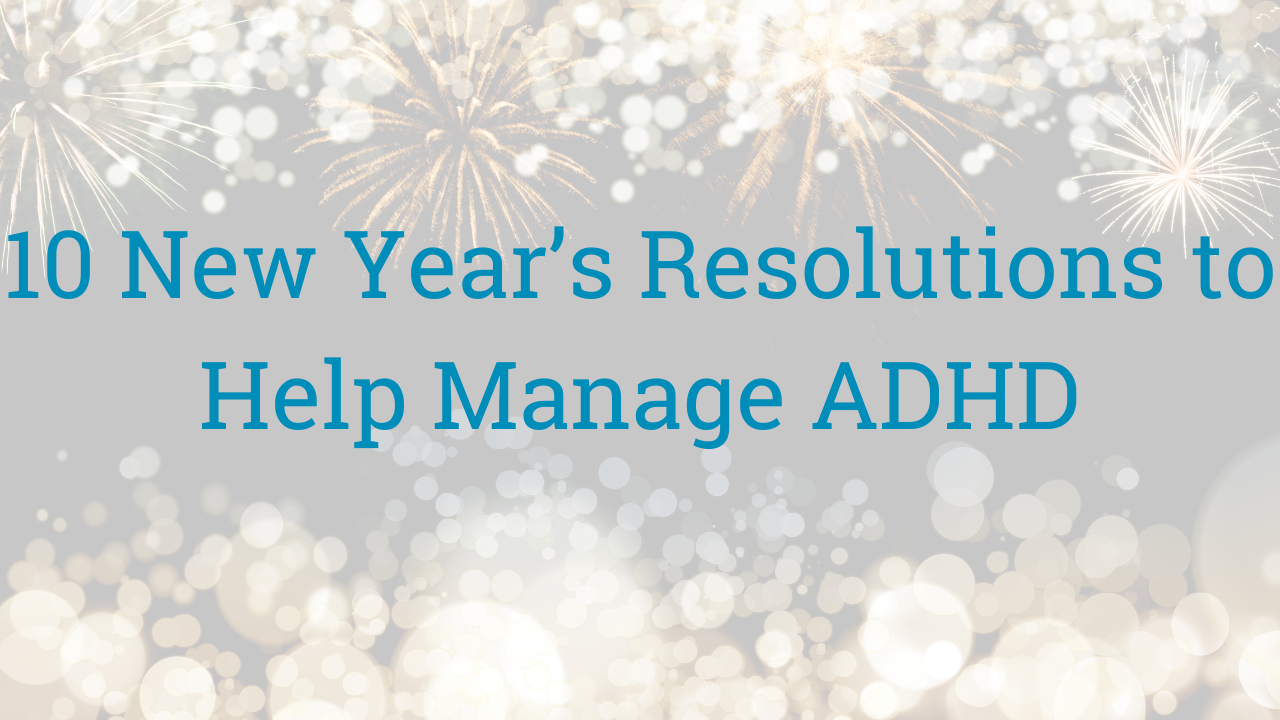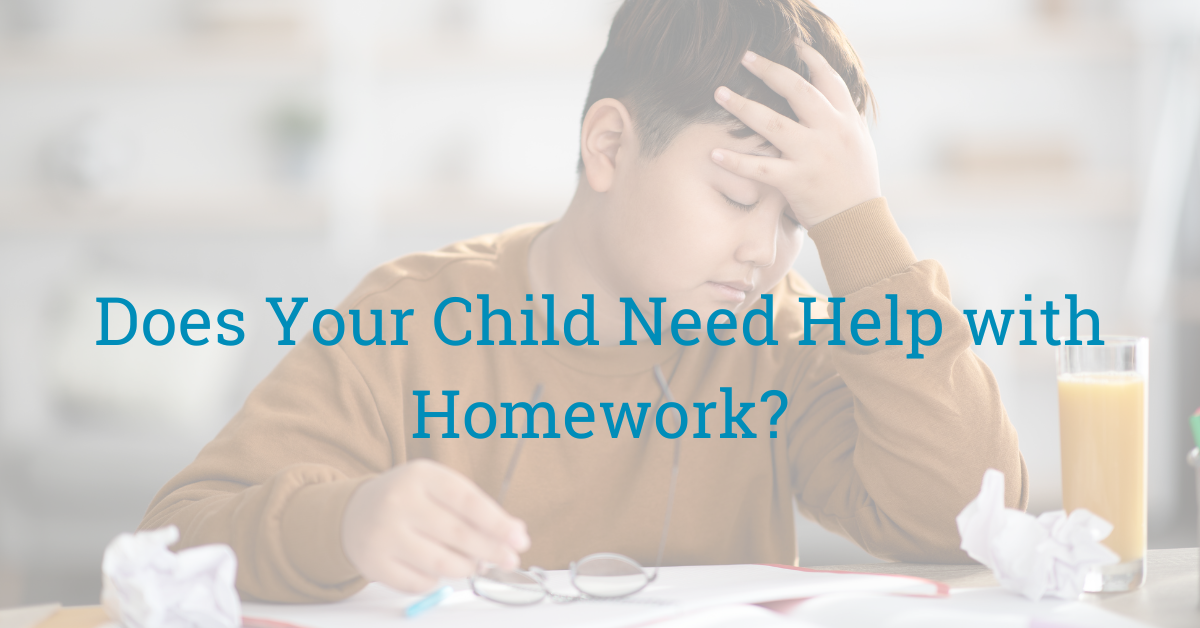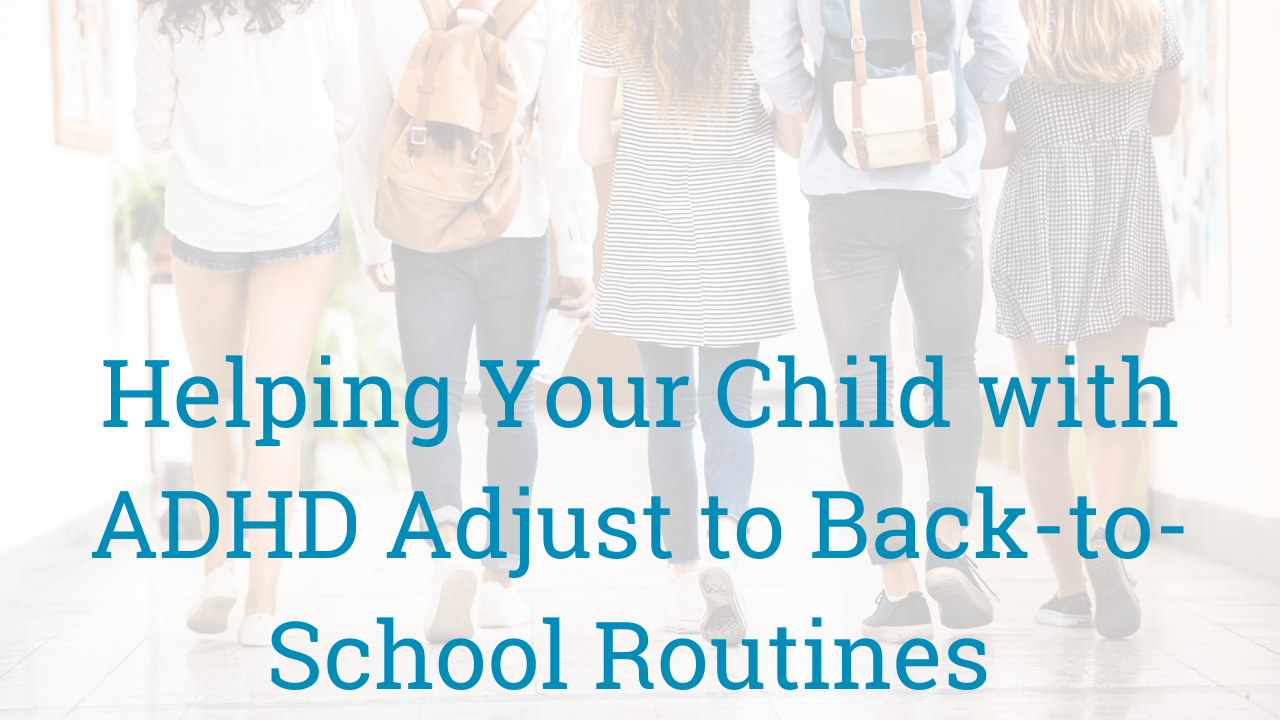
Navigating ADHD in Marriage: Practical Strategies for Couples

This is a guest post from Dr. Nick Bach.
Introduction to ADHD in Marriages
When ADHD enters a marriage, it can create a unique set of challenges that test patience, communication, and love. ADHD and marriage dynamics often involve misunderstandings and frustrations, but with practical strategies and a commitment to understanding, couples can build stronger, more resilient bonds. Approximately 20% of marriages include at least one spouse with ADHD, based on adult ADHD prevalence rates of 4-5%.
This post explores the ADHD spouse marriage challenges, offers detailed practical tips for both the non-ADHD and ADHD spouse, examines the role of marriage counseling for ADHD, and highlights how medication can support marriage with an ADHD spouse.
I’m Dr. Nick Bach, and drawing from my experience as a marriage counselor in Louisville, I’ll share insights from couples who’ve navigated these dynamics successfully.
Common Challenges in ADHD Marriages
ADHD and relationship dynamics can strain even the most loving partnerships. The neurological differences of ADHD—inattention, impulsivity, and emotional dysregulation—manifest in ways that disrupt marital harmony. Here are some common ADHD spouse marriage challenges:
- Communication breakdowns: The ADHD spouse may struggle to stay focused during conversations, interrupting or forgetting key details, leaving the non-ADHD spouse feeling unheard.
- Uneven task distribution: The non-ADHD spouse often takes on more household or financial responsibilities, leading to resentment.
- Emotional volatility: Impulsive reactions or mood swings can escalate conflicts, making arguments feel intense and unresolved.
- Time management struggles: Chronic lateness or missed deadlines by the ADHD spouse can frustrate the non-ADHD partner, who may feel they’re always “waiting.”
- Inconsistent affection: The ADHD spouse’s distractibility may make the non-ADHD spouse feel neglected or unloved.
- Hyperfocus mismatches: The ADHD spouse may hyperfocus on hobbies or work, sidelining the relationship, which can feel like rejection.
- Financial strain: Impulsive spending or forgetting to pay bills can create tension, especially if the non-ADHD spouse manages the fallout.
These challenges can create a cycle of frustration, but Proverbs 15:1 reminds us,
“A gentle answer turns away wrath, but a harsh word stirs up anger.” Approaching these issues with patience is key to managing ADHD in marriage.
For example, I worked with Sarah and Michael, a couple struggling with Michael’s ADHD (Names have been changed to protect confidentiality.) Michael’s forgetfulness—missing bill payments or forgetting plans—left Sarah feeling like the “manager” of their marriage. Through practical strategies, they learned to share responsibilities more equitably, easing Sarah’s burden and helping Michael feel supported rather than criticized.
Practical Tips for the Non-ADHD Spouse
Coping with ADHD in a relationship requires empathy and intentional strategies for the non-ADHD spouse. Here are detailed tips to navigate ADHD spouse marriage challenges:
- Reframe ADHD behaviors: Recognize that forgetfulness or impulsivity stems from neurology, not a lack of care. Reflect on 1 Corinthians 13:4-5, which calls us to love patiently.
- Use clear, concise communication: During communication in an ADHD marriage, keep conversations focused. For example, say, “Can we discuss dinner plans now?” instead of open-ended questions.
- Create shared systems: Use tools like a shared Google Calendar or a whiteboard for tasks. Sarah found that a shared app for chores helped Michael stay on track, reducing her stress.
- Set boundaries lovingly: If the ADHD spouse’s impulsivity leads to overspending, agree on a budget together. Discuss calmly, emphasizing teamwork.
- Prioritize self-care: Join a support group or practice hobbies to avoid burnout. In Louisville, community resources can connect you with others facing similar challenges.
- Celebrate small wins: Acknowledge when the ADHD spouse completes a task, fostering positivity. A simple “Thank you for handling that” goes a long way.
- Seek education: Read books like The ADHD Effect on Marriage by Melissa Orlov to understand ADHD and relationship dynamics better.
These steps help the non-ADHD spouse feel empowered, reducing resentment and fostering mutual respect.
Practical Tips for the ADHD Spouse
The ADHD spouse can also take proactive steps to support their partner and strengthen the marriage with an ADHD spouse. Here are actionable strategies:
- Leverage organizational tools: Use apps like Todoist or set phone reminders for tasks like paying bills or date nights. Michael adopted a reminder system, which helped him follow through consistently.
- Practice active listening: During communication in an ADHD marriage, maintain eye contact and paraphrase your spouse’s words to show engagement (e.g., “So you’re saying you need help with…”).
- Use Cognitive Behavioral Therapy (CBT) techniques: Work with a therapist to develop skills like managing impulsivity or improving focus, which can reduce conflicts and enhance reliability.
- Pause before reacting: If emotions run high, take a moment to breathe before responding. Philippians 4:6 encourages, “Do not be anxious about anything, but in every situation, by prayer and petition, present your requests to God.”
- Break tasks into steps: Large tasks like cleaning can overwhelm. Divide them into smaller steps (e.g., “Tidy one room today”) to stay focused.
- Express gratitude: Regularly thank your spouse for their patience or support, building emotional connection. For example, “I really appreciate you picking up the slack yesterday.”
- Work on self-awareness: Track ADHD symptoms (e.g., impulsivity) using a journal to identify triggers and discuss them with your spouse.
- Seek accountability: Share goals with your spouse or a therapist to stay on track with responsibilities.
These efforts show commitment to coping with ADHD in a relationship, aligning with the biblical call to “love your neighbor as yourself” (Mark 12:31).
Another couple, Emily and David, faced tension over Emily’s ADHD-driven impulsive purchases (Names have been changed to protect confidentiality). By adopting a budgeting app, practicing mindfulness, and using CBT techniques, Emily reduced financial strain, while David learned to communicate concerns calmly, strengthening their bond.
The Role of Marriage Counseling in ADHD Marriages

Marriage counseling for ADHD is a transformative tool for neurodiverse couples, addressing the unique challenges posed by ADHD in a way that general counseling may not. It provides a structured environment to tackle ADHD and relationship dynamics, helping couples like Sarah and Michael or Emily and David rebuild trust and connection. A trained marriage counselor will use evidence-based approaches tailored to the specific needs of ADHD marriages, fostering teamwork and mutual understanding.
Counseling can help with a range of issues, including:
- Improving communication: ADHD often disrupts communication in an ADHD marriage, with the ADHD spouse interrupting or zoning out. Counselors teach techniques like active listening and structured dialogue to ensure both partners feel heard.
- Balancing responsibilities: The non-ADHD spouse may feel overburdened by tasks. Counseling helps couples create equitable systems for household and financial duties, reducing resentment.
- Managing emotional volatility: The ADHD spouse’s impulsivity can lead to heated arguments. Therapists guide couples in de-escalation strategies and emotional regulation, fostering calmer interactions.
- Rebuilding intimacy: ADHD’s distractibility can erode emotional and physical closeness. Counseling explores ways to prioritize connection, such as scheduled date nights or intentional gestures of affection.
- Addressing hyperfocus mismatches: When the ADHD spouse hyperfocuses on work or hobbies, the non-ADHD spouse may feel neglected. Counselors help couples set boundaries and carve out quality time.
- Navigating financial stress: Impulsive spending, a common ADHD trait, can strain budgets. Counseling introduces tools like joint budgeting or financial accountability plans to align priorities.
- Strengthening partnership: Counseling shifts the dynamic from one spouse feeling like a “parent” to a collaborative team, emphasizing shared goals and mutual support.
I use the Gottman Method for couples counseling, which is particularly effective for couples with an ADHD spouse. Backed by over 40 years of research, the Gottman Method focuses on building friendship, managing conflict, and creating shared meaning. For the ADHD spouse, it offers structured tools to improve attentiveness and emotional regulation, such as “softened startups” to initiate discussions calmly or “repair attempts” to de-escalate conflicts.
For example, Michael learned to use Gottman’s “I feel” statements (e.g., “I feel overwhelmed when tasks pile up”) to express needs without triggering defensiveness, helping Sarah respond with empathy. The method’s emphasis on small, consistent actions—like daily appreciation—helps the ADHD spouse stay engaged despite distractibility, fostering a stronger bond.
As a couples counselor in Middletown, I also use other evidence-based strategies, such as:
- Couples communication training: Teaches both partners to express needs clearly, reducing misunderstandings. For instance, Emily and David practiced turn-taking in sessions, which improved their ability to discuss finances without arguments.
- Strength-based strategies: Highlights the ADHD spouse’s strengths, like creativity or enthusiasm, to enhance the relationship. Counselors might encourage the ADHD spouse to plan a fun activity, leveraging their spontaneity to boost connection.
Counseling provides a safe space to integrate faith, leaning on Psalm 46:1, “God is our refuge and strength, an ever-present help in trouble.” By addressing these challenges, managing ADHD in marriage through counseling equips couples with practical tools and emotional resilience to thrive. Whether navigating communication breakdowns or rebuilding intimacy, counseling helps couples move from frustration to partnership, creating a more balanced and fulfilling marriage with an ADHD spouse.
The Role of Medication in Supporting ADHD Marriages
Medication can be a valuable tool in ADHD and marriage by addressing symptoms that strain relationships. Stimulants (e.g., Adderall) or non-stimulants (e.g., Strattera) can improve focus, reduce impulsivity, and stabilize emotions. For example, a medicated ADHD spouse may better remember tasks or engage in conversations, easing the non-ADHD spouse’s load.
Emily found that medication helped her stay present during discussions with David, reducing arguments. However, medication works best alongside therapy and lifestyle changes.
At Next Step 4 ADHD, providers specialize in personalized ADHD treatment plans, guiding couples to find the right medication and support strategies for their unique needs. Their expertise ensures that treatment aligns with relationship goals, fostering harmony. To schedule an appointment in Louisville or via telehealth, visit the Next Step 4 ADHD contact page. Couples should consult a psychiatrist to explore options, ensuring the plan supports both the individual and the marriage with an ADHD spouse.
Building a Stronger Marriage with ADHD
Navigating ADHD and marriage requires mutual effort, patience, and practical tools. Both spouses must commit to understanding ADHD’s impact and celebrating progress, like a successful conversation or a shared task. Coping with ADHD in a relationship means embracing small victories and approaching challenges as a team.
As Romans 15:13 encourages, “May the God of hope fill you with all joy and peace as you trust in him.”
Conclusion
ADHD and marriage can be challenging, but with practical strategies, couples can turn obstacles into opportunities for growth. By addressing ADHD spouse marriage challenges, using tools like shared systems, active listening, and CBT, and leveraging marriage counseling for ADHD, partners can build stronger bonds. Medication, supported by psychiatrists in Louisville at Next Step 4 ADHD, can also improve communication in an ADHD marriage, fostering greater connection. Couples like Sarah and Michael, and Emily and David, show that with effort and understanding, neurodiverse marriages can thrive.
About the Author

Dr. Nick Bach, a licensed clinical psychologist and marriage counselor in Louisville, Kentucky, specializes in helping couples at Grace Psychological Services strengthen their bonds through evidence-based therapy rooted in Christian values.
Learn More
5 Ways Nature Supports ADHD
Spending time in nature isn’t just fun—it can be incredibly beneficial for kids with ADHD. Research shows that outdoor play and exposure to green spaces can improve focus, reduce hyperactivity, and support emotional regulation. If your child struggles with after-school energy bursts or focus issues, outdoor activities can be a great way to channel their energy in a positive way.
5 Ways Nature Supports ADHD
Spending time in nature:
1. Boosts Focus & Attention
Being in natural environments can help kids with ADHD concentrate better. Studies show that even 20 minutes in a park can lead to improved attention and reduced impulsivity—a concept often referred to as the “Green Space Effect.”
2. Reduces Stress & Anxiety
Spending time outdoors naturally lowers cortisol levels (the stress hormone), helping kids feel calmer and more in control of their emotions. Fresh air and open spaces give them a healthy outlet for frustration and built-up energy.
3. Encourages Movement & Exercise
Physical activity is one of the best natural treatments for ADHD, helping to regulate dopamine and norepinephrine levels in the brain. Running, climbing, or even walking outdoors enhances mood, focus, and overall well-being.
4. Improves Emotional Regulation
Nature helps kids reset emotionally. Whether they’re feeling overstimulated or frustrated, outdoor play allows them to release pent-up emotions in a healthy way, reducing meltdowns and improving self-regulation.
5. Provides a Healthy Alternative to Screens
Excessive screen time can overstimulate kids with ADHD, leading to difficulty focusing, emotional dysregulation, and sleep disturbances. Outdoor play engages their senses and creativity, offering a healthier form of stimulation.
Best Outdoor After-School Activities for Kids with ADHD
Looking for fun and beneficial outdoor activities? Here are some great options to help your child burn energy, improve focus, and feel their best after school:
1. Nature Walk or Scavenger Hunt
- Take a walk in a nearby park or nature trail.
- Create a scavenger hunt with things like “Find a red leaf” or “Spot a bird.”
- Walking at a steady pace can help calm their mind and increase focus.
2. Bike Riding or Scooter Time
- Biking or riding a scooter gives kids a fun way to move their bodies while improving coordination.
- This is a great solo or social activity for kids who like structured movement.
3. Obstacle Course or Playground Play
- Set up an at-home obstacle course using cones, jump ropes, and tunnels.
- Let them climb, jump, and swing at a local playground to burn off extra energy.
4. Gardening or Digging in the Dirt
- Gardening helps kids with ADHD engage their senses and develop patience.
- Give them small tasks like planting, watering, or pulling weeds—it encourages focus and responsibility.
5. Sports & Outdoor Games
- Structured activities like soccer, basketball, or frisbee provide an outlet for energy while teaching teamwork and self-discipline.
- Simple games like tag or hide-and-seek keep them engaged while moving.
Read more about sports here: [Choosing the Best Sports for Kids with ADHD]
Final Thoughts
Spending time outdoors is a natural and effective way to support kids with ADHD. Whether it’s structured play, movement-based activities, or sensory engagement, being in nature helps reduce stress, improve focus, and regulate emotions.
If you need more ADHD-friendly strategies for your child, Next Step 4 ADHD is here to help! Contact us today to learn more about our specialized ADHD programs and resources.
Learn More
A Dye-Free Valentine’s Day for Kids with ADHD
Valentine’s Day is all about love, but for kids with ADHD, it’s also important to show love to their brains by avoiding artificial dyes. Studies have suggested artificial food dyes to hyperactivity, inattention, and emotional regulation challenges in children with ADHD.
These synthetic dyes—found in many candies and processed snacks—can make it harder for kids to focus and stay calm. The good news? A fun, festive, and dye-free Valentine’s Day is totally possible!
What’s The Deal With Artificial Dyes?
Artificial food dye has been in the news lately due to growing concerns over its potential effects on children’s health — and the recent ban on Red Dye 3.
Research has shown that artificial food coloring may exacerbate hyperactivity and attention issues in children, contributing to more pronounced ADHD symptoms. Studies have suggested that certain food dyes, like Red 40 and Yellow 5, can interfere with the brain’s ability to focus and regulate behavior.
As a result, many parents and experts are calling for greater regulation and transparency around food coloring in products, especially when it comes to children’s diets. You don’t have to wait for other artificial dyes to get banned — you can make swaps now.
Non-Candy Valentine’s Day Ideas
Skip the sugary, dye-filled treats and opt for creative, engaging gifts instead:
- Stickers and temporary tattoos with hearts, animals, or superheroes
- Mini puzzles or fidget toys to keep little hands busy
- Homemade crafts like friendship bracelets or decorated bookmarks
- Themed pencils, erasers, or notebooks for a practical, fun surprise
- Small potted plants or seed packets for a unique, nature-inspired gift
Dye-Free Treats Kids Will Love

If you still want to include some sweets, choose brands that skip the artificial colors:
- YumEarth – Organic lollipops, gummy bears, and fruit snacks made with natural colors
- Unreal – Dye-free chocolates that taste just like the classics
- Smart Sweets – Low-sugar, naturally colored gummy candies
- MadeGood – Healthy, allergen-friendly granola bites and crispy squares
By making a few simple swaps, you can create a Valentine’s Day that’s fun, delicious, and ADHD-friendly. While Next Step 4 ADHD doesn’t specifically endorse these brands, we encourage you to do your own research and find dye-free treats that your kids will love. A little extra thought goes a long way in helping kids feel their best while still enjoying the holiday!
Need to talk? Schedule your next appointment here.
Learn More
10 New Year’s Resolutions to Help Manage ADHD
As the new year begins, it’s a great time to set resolutions that promote mental and physical wellness and improve your day-to-day life. If you have ADHD, resolutions focused on organization, self-care, and healthy habits can make a world of difference.
Here are 10 New Year’s resolutions designed to help manage ADHD:
1. Prioritize Consistent Routines
One of the most effective ways to manage ADHD is by establishing a structured daily routine. Set specific times for waking up, eating, working, and going to bed. Consistency can help reduce the chaos that often comes with ADHD and create a sense of predictability.
2. Break Tasks Into Smaller Steps
People with ADHD often feel overwhelmed by large tasks. This year, commit to breaking tasks into smaller, manageable steps. Writing down each step and crossing them off as you complete them will give you a clear path and make the process feel less daunting.
3. Use Timers to Stay on Track
Staying focused can be difficult, so using timers or alarms to limit the time spent on specific tasks can help. Whether it’s setting a timer to work for 20 minutes and taking a 5-minute break or using an alarm to remind you to switch tasks, this technique can improve focus and productivity.
4. Get Organized and Stay Tidy
Clutter can be particularly distracting for people with ADHD. Make a resolution to declutter one area of your home or workspace each week. Keep things organized by using labels, storage bins, or digital apps that help you stay on top of tasks and appointments.
5. Practice Mindfulness and Relaxation Techniques
Mindfulness practices, such as deep breathing, meditation, or yoga, can help reduce stress and improve focus. Commit to spending a few minutes each day practicing mindfulness to center yourself and calm your mind, especially when feeling overwhelmed.
Need a guided meditation? Here’s one from Certified ADHD Coach Pam Valdes:
6. Set Achievable Goals
Goal-setting can be challenging for those with ADHD, as long-term goals can feel unattainable. This year, focus on setting smaller, short-term goals that are realistic and achievable. Celebrate your accomplishments along the way to keep your motivation high.
Learn more about SMART goals here.
7. Exercise Regularly
Exercise has been shown to improve focus and mood for people with ADHD. Set a goal to incorporate physical activity into your routine, whether it’s going for a walk, joining a fitness class, or practicing sports. Exercise helps reduce restlessness and boosts mental clarity.
8. Limit Distractions
To stay productive, it’s important to minimize distractions. Commit to creating a workspace that limits distractions—such as turning off notifications, using noise-canceling headphones, or finding a quiet space to focus. Reducing external distractions can help you stay on task.
9. Practice Self-Compassion
ADHD can sometimes lead to feelings of frustration and self-criticism. Make a resolution to be kinder to yourself. Practice self-compassion by acknowledging that ADHD may make certain tasks more challenging, but it doesn’t define you.
Remember to treat yourself with patience and understanding.
10. Seek Support When Needed
Managing ADHD can be overwhelming, but you don’t have to do it alone. This year, consider seeking professional support. Whether it’s through therapy, coaching, or joining an ADHD support group, connecting with others can provide guidance and boost your motivation.
How Pam Valdes, Certified ADHD Coach, Can Help

Pam Valdes is a certified ADHD coach who specializes in helping individuals with ADHD create strategies tailored to their unique challenges. She works with clients to establish routines, improve focus, and set realistic goals that lead to lasting success. Pam’s empathetic, non-judgmental approach ensures that clients feel supported while they work toward their goals. Her personalized coaching can help you develop actionable strategies to manage ADHD and make progress in all areas of life.
If you’re looking for support in managing ADHD this year, the Next Step 4 ADHD team is here to help. Contact our team today to schedule a coaching session and start the new year with a clear plan for success.
Learn More
How to Tame Your Inner Critic
Living with ADHD often means battling an inner critic—a persistent voice that points out mistakes, amplifies insecurities, and keeps you stuck in a cycle of self-doubt.
While this critical voice can be loud, you don’t have to let it take control. Here’s how to tame your inner critic and boost your confidence:
1. Recognize the Inner Critic
The first step is identifying when your inner critic is speaking. Pay attention to negative self-talk like, “I’ll never get this right” or “I’m always messing things up.” Awareness is the key to shifting the narrative.
2. Challenge Negative Thoughts
Once you notice your inner critic, challenge its accuracy. Ask yourself: Is this thought true? Is there evidence to support it? Often, the inner critic exaggerates or distorts reality.
3. Practice Self-Compassion
Replace harsh criticism with kindness. Remind yourself that mistakes are part of being human—and part of learning. Treat yourself with the same patience and understanding you’d show a close friend.
4. Reframe Your ADHD Struggles
Instead of viewing ADHD traits as flaws, see them as differences. For example, impulsivity might be reframed as spontaneity, and hyperfocus as dedication. This shift in perspective can quiet the critic.
5. Create a Supportive Environment
Surround yourself with people who understand and value you. Friends, family, or ADHD coaches can help you counterbalance the negativity of your inner critic with encouragement and support.
6. Celebrate Small Wins
Acknowledge your successes, no matter how small. Completing a task, staying organized for a day, or simply showing up are all victories that deserve recognition.
7. Use ADHD-Friendly Tools
Structure and systems can help quiet the critic by reducing overwhelm. Tools like planners, reminders, and timers make it easier to manage tasks and reinforce your sense of control. Learn more about making SMART goals here.
8. Seek Professional Support
Sometimes, the inner critic is deeply ingrained and hard to overcome on your own. Therapy or ADHD coaching can provide personalized strategies to build self-esteem and resilience.
Find More Tips on Our Coaching Corner
For even more strategies on managing ADHD, check out the Coaching Corner page, where our ADHD coach Pam Valdes shares practical tips to help you stay focused and motivated.
Pam’s expertise can provide you with additional tools to make daily tasks more manageable and engaging. Whether you’re looking for new ways to approach time management or need help with organization, Pam’s advice can make a difference!
Tune into the video below to hear Certified ADHD Coach Pam Valdes speak more on the topic:
At Next Step 4 ADHD, we understand how challenging self-doubt can be for those with ADHD. Our team is here to help you overcome the inner critic and embrace your strengths. Visit our Coaching Corner for tips and strategies tailored to ADHD or schedule a session with one of our professionals today!
Learn More
How to Make Boring Tasks Interesting
We all have tasks that feel dull and unmotivating, but for those with ADHD, staying focused on these activities can be even more challenging. The good news is there are ways to make boring tasks more engaging by stimulating your senses.
Tips to Liven Up Boring Tasks
- Listen to Music: Create a playlist with upbeat songs that keep your energy up. Music can turn an otherwise monotonous activity into something more enjoyable. Experiment with different genres to see what helps you focus.
- Drink Cold Water: Keep a cold glass of water nearby while working on tasks. The refreshing sensation can help keep you alert and give your mind a quick boost of energy when you’re feeling distracted.
- Change Scents: Use essential oils or a scented candle to create a pleasant environment. Certain scents, like peppermint or citrus, can increase focus and make the workspace more inviting.
- Incorporate Movement: Try standing, walking, or using a fidget tool to keep your body engaged while you work. Physical movement can help channel excess energy and improve focus.
- Break Tasks into Smaller Steps: Completing small, achievable goals can help keep momentum going and make tasks feel less overwhelming. Learn more about SMART goals here.
Find More Tips on the Coaching Corner
For even more strategies on managing ADHD, check out the Coaching Corner page, where our ADHD coach Pam Valdes shares practical tips to help you stay focused and motivated.
Pam’s expertise can provide you with additional tools to make daily tasks more manageable and engaging. Whether you’re looking for new ways to approach time management or need help with organization, Pam’s advice can make a difference!
Tune into the video below to hear Certified ADHD Coach Pam Valdes speak more on the topic:
Signs You Should Reach Out for ADHD Help
It’s common to feel overwhelmed or distracted occasionally, but if you notice that ADHD symptoms are interfering with your daily life, it might be time to seek professional help.
Struggling with focus, missing deadlines, feeling disorganized, or becoming easily frustrated are all signs that your ADHD may need more attention.
How Next Step 4 ADHD Can Help
At Next Step 4 ADHD, we offer personalized treatment plans designed to meet your unique needs. Whether it’s through therapy, coaching, or medication management, our experienced team can help you regain control of your daily routine and overcome the challenges that come with ADHD. Reach out to us for support and guidance, and take the next step toward a more focused and fulfilling life!
Click to request an appointment.
Learn More
7 Homework Tips for Kids with ADHD
Homework can be a challenge for kids with ADHD, but with the right strategies, you can make it a smoother and more productive process. Here are seven homework tips to help your child stay focused and engaged.
1. Create a Consistent Routine
Set a specific time each day for homework. A consistent homework routine helps your child know what to expect and reduces distractions. Stick to the schedule as much as possible, even on days when there’s less homework to do.
2. Break Tasks into Smaller Steps
Big assignments can be overwhelming for kids with ADHD. Break down larger tasks into manageable chunks. Celebrate small wins after each step to keep your child motivated and give them a sense of accomplishment.
3. Use a Quiet, Organized Space
A dedicated workspace helps your child stay focused. Make sure it’s free from distractions like toys or TV. Keeping this space organized can also help reduce feelings of overwhelm, making it easier to get started.
4. Incorporate Breaks
Frequent, short breaks are essential. Encourage your child to take a 5-10 minute break every 20-30 minutes to move around, stretch, or grab a snack. This helps them reset and improves focus when they return to work.
This is known as the Pomodoro Technique, and you can find timers to help keep track of the breaks.
5. Use Visual Aids
Kids with ADHD often respond well to visual reminders. Try using checklists, timers, or colorful sticky notes to help them keep track of tasks and deadlines. These tools can make abstract tasks feel more concrete and achievable.
6. Encourage Positive Reinforcement
Celebrate your child’s efforts, not just the end results. Positive reinforcement builds confidence and encourages them to keep going, even when the work is tough. Use praise or rewards to acknowledge their focus and hard work. You can read more about positive parenting here.
7. Communicate with Teachers
Work closely with your child’s teacher to understand homework expectations and challenges. Teachers can provide valuable insights and may be able to offer accommodations, such as extended deadlines or modified assignments, that suit your child’s learning style.
How to Know When Homework Struggles Warrant Help
It’s normal for kids with ADHD to face homework challenges, but if the frustration becomes overwhelming or persists despite trying different strategies, it may be time to seek additional support.
Watch for signs like frequent emotional outbursts, avoidance of schoolwork, or ongoing difficulty completing assignments. If these struggles start affecting your child’s self-esteem or school performance, reaching out for professional help can make a big difference.
How Next Step 4 ADHD Can Help
At Next Step 4 ADHD, we understand the unique challenges kids with ADHD face, both in and out of the classroom. Our team offers comprehensive support through coaching, therapy, and individualized plans that focus on building executive functioning skills and improving attention.
Whether your child needs help managing homework, staying organized, or building confidence, we’re here to help every step of the way. Reach out today to learn more about how we can support your family.
Learn More
Helping Your Child with ADHD Adjust to Back-to-School Routines
By now, the initial excitement of the new school year has worn off, and some children with ADHD may start struggling to keep up with their routines.
If your child is having a hard time adjusting, it’s not too late to implement strategies that can help them get back on track.
Here’s how you can support your child’s adjustment and ensure they have a successful school year, courtesy of the NextStep4ADHD team.
1. Revisit and Reinforce the Daily Routine
If your child is having trouble sticking to their school routine, revisit and reinforce your daily routine and schedule with them. Consistent morning, after-school, and bedtime routines help create a sense of stability, which can reduce anxiety and make daily transitions smoother.
If mornings are rushed, for example, preparing clothes and school bags the night before can alleviate stress. Make small adjustments as needed to help your child feel more in control of their day.
2. Use Visual Aids to Stay Organized
Visual aids are powerful tools for helping children with ADHD stay organized. A visual schedule or calendar that outlines school activities, homework times, and extracurriculars can help your child anticipate what’s next and reduce overwhelm.
Consider color-coding different subjects or activities to make the schedule more engaging. Daily checklists can also help your child track their tasks and responsibilities and help provide a sense of accomplishment as they complete each one.
3. Set Short-Term Goals
Children with ADHD often respond well to short-term goals that are more manageable and less overwhelming than long-term objectives. Break down larger tasks into smaller goals that your child can achieve daily or weekly.
Celebrate these small successes to keep them motivated. For instance, you could set a goal for your child to complete their homework on time for a week, and reward them with a special treat or privilege.
Learn more about SMART Goals here.
4. Review Homework and Study Habits
If your child is struggling with homework or study sessions, it’s time to review their habits. Ensure they have a quiet, distraction-free space for doing homework, and establish a regular routine that includes short breaks to prevent fatigue. Learn more about setting up a homework space here.
If they find large assignments overwhelming, break them into smaller, more manageable parts, and use a timer to help them stay focused on each task.
5. Know the Warning Signs That ADHD Isn’t Well-Managed
As the school year progresses, it’s important to stay alert to signs that your child’s ADHD may not be well-managed. Even before issues pop up, familiarize yourself with the warning signs.
Some red flags include:
- Difficulty Staying Focused: If your child is consistently unable to concentrate on tasks or follow through with instructions, it may indicate that their ADHD symptoms are interfering with their schoolwork.
- Increased Frustration or Irritability: Frequent emotional outbursts, frustration, or irritability can be signs that your child is feeling overwhelmed and unable to cope with the demands of school.
- Declining Academic Performance: If your child’s grades are dropping or they’re receiving negative feedback from teachers, it might be a sign that their ADHD symptoms are impacting their ability to learn and perform in school.
- Avoidance of Schoolwork: A sudden reluctance to go to school, complete homework, or participate in class could indicate that your child is struggling with more than they can manage.
If you notice these warning signs, it may be time to revisit your child’s ADHD management plan. Consulting with their Next Step 4 ADHD care team can help you make necessary adjustments to their treatment plan, whether it involves medication, therapy, or behavioral interventions.
6. Implement Positive Parenting Techniques
Positive parenting can be a game-changer in helping your child adjust to school routines. Focus on reinforcing good behavior with praise and rewards, setting clear expectations, and being consistent with consequences.
This approach not only helps your child feel supported but also encourages them to stay motivated and follow routines. For more insights on how positive parenting can benefit children with ADHD, visit Dr. Kristi Brisco’s expert advice.
7. Communicate with Teachers Regularly
Your child’s teachers have a close view of their daily behavior and academic performance, making regular communication with them crucial. Stay informed about your child’s progress, and share strategies that work well at home. This collaboration can help create a consistent support system both in the classroom and at home, ensuring that any issues are addressed promptly.
8. Encourage Social Interaction
Social interactions can be particularly challenging for children with ADHD, but they are essential for emotional well-being. Encourage your child to participate in social activities, both inside and outside of school.
If your child is struggling to connect with peers, consider arranging playdates or enrolling them in group activities where they can practice social skills in a structured environment.
Questions? We’re Here for You
Adjusting to back-to-school routines mid-year can be challenging for children with ADHD, but with the right strategies and support, your child can find their rhythm and succeed. By reinforcing routines, setting short-term goals, and staying vigilant for signs that their ADHD may not be well-managed, you can help your child navigate the school year with confidence. Your involvement and encouragement are key to helping your child thrive both academically and socially.
If you’d like to make an appointment, click here to get started.
Learn More
Why Summer Is the Perfect Time to Start ADHD Coaching
Summer is a season of warmth, relaxation, and a break from the regular hustle and bustle of life.
It’s a time when routines change, and the days are longer, offering a unique opportunity for growth and self-improvement.
For individuals with ADHD, summer can be an especially advantageous time to start ADHD coaching.
Here’s why:
1. Flexible Schedules
During the summer months, many people experience a shift in their daily schedules. Students are on break, and even adults often take vacations or experience a more relaxed work environment.
This flexibility can provide the perfect window to integrate ADHD coaching sessions without the stress of juggling a full workload or school assignments. With a more open schedule, you can focus on developing new habits and strategies that can be seamlessly integrated into your routine.
2. Reduced Stress Levels
The summer season often brings a decrease in stress compared to the rest of the year. The sunny weather, outdoor activities, and vacation time contribute to a more relaxed state of mind.
Starting ADHD coaching during this period allows you to approach the process with a clear and calm mindset, making it easier to absorb new information and implement strategies effectively. Lower stress levels can also enhance your ability to stay motivated and committed to the coaching process.
3. Time for Self-Reflection
Summer provides an excellent opportunity for self-reflection and personal growth. With fewer immediate pressures, you can take the time to assess your strengths and challenges, set goals, and develop a plan for the future.
ADHD coaching can help you harness this reflective period to identify specific areas of improvement, create actionable steps, and build a stronger foundation for managing ADHD symptoms.
4. Establishing New Routines
Summer is a great time to experiment with and establish new routines. Whether it’s incorporating regular exercise, improving sleep habits, or organizing your living space, the summer months offer a unique opportunity to test out new strategies in a low-pressure environment.
ADHD coaching can provide the guidance and support needed to create sustainable routines that can be carried into the busier months ahead.
5. Preparation for the Upcoming School Year or Work Cycle
For students, starting ADHD coaching in the summer can be a proactive way to prepare for the upcoming school year. Coaching can help develop effective study habits, time management skills, and organizational strategies that will be invaluable when classes resume.
For adults, summer coaching can provide tools to enhance productivity, manage work-related stress, and improve overall performance, setting you up for success as the year progresses.
6. Leveraging Outdoor Activities
Summer’s pleasant weather encourages outdoor activities, which can be highly beneficial for individuals with ADHD. Physical activity is known to improve focus, reduce hyperactivity, and enhance mood. Incorporating outdoor activities into your ADHD coaching plan can make the process more enjoyable and effective.
Pam Valdes, M.A., AACC, can help you find ways to integrate physical exercise into your daily routine, maximizing both physical and mental health benefits.
7. Building Confidence and Momentum
Starting ADHD coaching in the summer can help you build confidence and momentum that will carry you through the rest of the year. As you begin to see positive changes and improvements in your daily life, your confidence will grow, motivating you to continue working towards your goals. This momentum can be a powerful driver for long-term success in managing ADHD.
Get ADHD Help in Louisville, Kentucky
Summer is a season of opportunities, and for individuals with ADHD, it offers a unique chance to start coaching in a supportive and relaxed environment. The flexible schedules, reduced stress levels, and ample time for self-reflection make it an ideal period to focus on personal growth and development.
By starting ADHD coaching in the summer, you can establish new routines, build confidence, and prepare for the challenges ahead with renewed energy and a clear plan of action — and we’re here to help.
At NextStep4ADHD, we are here to support you on your journey towards better ADHD management. Our coaching programs are designed to provide you with the tools and strategies you need to thrive.
Take the first step this summer and embrace the potential for positive change.
Ready to start your ADHD coaching journey this summer? Contact NextStep4ADHD today to schedule your initial appointment and take the first step towards a more organized and fulfilling life.
Learn More
School’s Out: How to Make Summer More Structured
Summer break is a time of excitement and relaxation for many families, but for moms of kids with ADHD, it can also be a period of stress and uncertainty. Without the structure and routine of school, kids with ADHD can find it challenging to stay focused and manage their energy, leading to a challenging home environment.
But fear not! With some planning and practical strategies, you can create a summer that is enjoyable and manageable for everyone in your family!
1. Create a Flexible Routine
Kids with ADHD thrive on structure, but summer doesn’t have to be as rigid as the school year. Establish a flexible daily routine that includes regular wake-up times, meal times, and bedtimes.
Incorporate a mix of activities such as outdoor play, reading, and quiet time. A visual schedule can help your child understand and anticipate what comes next, reducing anxiety and meltdowns. Post it somewhere they’ll be able to see it easily.
Tip: Use colorful charts or apps to make the schedule engaging and easy to follow.
2. Break Activities into Manageable Chunks
Long activities can be overwhelming for kids with ADHD. Break tasks into smaller, manageable chunks with short breaks in between. For example, instead of a two-hour block of reading, try 20-minute sessions with a 10-minute break for a snack or some physical activity.
Tip: Use a timer to help your child understand how long each activity will last and when they can expect a break.
3. Incorporate Physical Activity
Physical activity is crucial for kids with ADHD. It helps burn off excess energy and improves focus. Plan for regular physical activities like swimming, biking, or even a simple game of tag in the backyard. Aim for at least 60 minutes of physical activity each day.
Read more about the benefits of exercise here.
Tip: Morning exercise can help set a positive tone for the rest of the day — and set their circadian rhythm— so consider starting the day with a fun physical activity.
4. Create a Calm Space
Having a designated calm space can be incredibly beneficial for a child with ADHD. This can be a corner of a room with comfortable seating, calming colors, and sensory tools like stress balls or weighted blankets. Encourage your child to use this space when they need to relax and regroup.
Tip: Include your child in the creation of this space to ensure it meets their needs and preferences.
5. Set Clear Expectations and Consequences
Children with ADHD benefit from clear expectations and consistent consequences. Make sure your child understands the rules and what is expected of them. Use positive reinforcement to encourage good behavior and provide immediate and consistent consequences for rule-breaking.
Read more about positive parenting here.
Tip: Use a reward system to motivate your child. Simple rewards like extra screen time or a special treat can be very effective.
6. Encourage Social Interaction
Social skills can be a challenge for kids with ADHD, but summer is a great time to practice. Arrange playdates with friends or enroll your child in group activities like summer camps or sports teams. These interactions help develop social skills and provide a sense of belonging.
Tip: Choose activities that align with your child’s interests to increase their engagement and enjoyment.
7. Limit Screen Time
While it can be tempting to let your child spend hours on screens, too much screen time can exacerbate ADHD symptoms. Set clear limits on screen time and encourage other activities like reading, arts and crafts, or outdoor play.
Tip: Create a daily tech-free time where the whole family engages in screen-free activities together.
8. Plan for Downtime
It’s important to balance activity with downtime. Over-scheduling can lead to burnout and increased stress. Make sure your child has time each day to relax and unwind.
Tip: Downtime doesn’t have to mean doing nothing. Activities like coloring, puzzles, or listening to music can be relaxing and enjoyable.
9. Stay Connected with Support Networks
You don’t have to navigate the summer alone. Stay connected with support networks such as other moms of kids with ADHD, online forums, or local support groups. Sharing experiences and tips can provide valuable insights and emotional support.
Tip: Consider joining a summer support group specifically for parents of children with ADHD to exchange ideas and encouragement.
10. Take Care of Yourself
Remember, you can’t pour from an empty cup. Taking care of yourself is crucial. Make time for your own hobbies and relaxation. Whether it’s reading a book, going for a walk, or having coffee with a friend, ensure you have time to recharge.
Learn more about self-care here.
Tip: Don’t hesitate to ask for help from family members or friends when you need a break.
Here for You
Summer with a child who has ADHD can be challenging, but with the right strategies and a positive mindset, it can also be a time of growth and fun. By creating a balanced routine, incorporating physical activity, and setting clear expectations, you can help your child thrive.
And remember, it’s okay to seek support and take care of yourself along the way. Click here to schedule an appointment with our team.
Here’s to a wonderful summer filled with happy memories!
Learn More